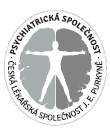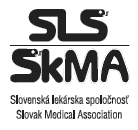Česká a slovenská psychiatrie

Časopis
Psychiatrické společnosti ČLS JEP
a Psychiatrickej spoločnosti SLS
souborný článek / review article
TERAPIA PACIENTA S DEMENCIOU ZAMERANÁ NA ORIENTÁCIU V REALITE
THERAPY OF PATIENT WITH DEMENTIA DIRECTED TO ORIENTATION IN REALITY
Tavel P.
Katedra psychológie, Filozofická fakulta UP, Olomouc
Centrum pre výskum spoločenských aspektov zdravia UPJŠ, Košice
Centrum pre výskum spoločenských aspektov zdravia UPJŠ, Košice
SÚHRN
Vzhľadom na starnúcu populáciu v Európe je problém demencie stále aktuálnejší. Popri farmakologických prístupoch je snaha rozvíjať aj nefarmakologické, ktoré robia bežne dostupnú terapiu demencie účinnejšou. Jedným z nefarmakologických prístupov je terapia pacienta, ktorá sa snaží o jeho orientáciu v realite. Tento prístup je jedným z najstarších a výskumami najviac overeným. Zameriava sa na kognitívne schopnosti pacienta s demenciou, ktorých straty sú demenciou najviac spojené. Bežne sa popisujú dve formy terapie: 24-hodinová forma a forma sedení, pričom každá z ich má svoje špecifiká a výhody. Keď je s terapiou spojených viacero otvorených otázok, je možné, že v niektorých oblastiach môže priniesť pozitívne zmeny.
Klíčová slova: demencia, nefarmakologický prístup, staroba, psychoterapia pri demencii.
SUMMARY
Tavel R.: Therapy of Patient with Dementia Directed to Orientation in Reality
According to ageing population in Europe the problem of dementia is an increasing topical problem. Beside pharmacological approach there is an ambition to develop nonpharmacological approaches that make a common accessible treatment of dementia more effective. Therapy of patient that is searching after his orientation in reality is one of nonpharmacological approaches. This approach is one of the oldest and one of the most verified by a research. It focuses on cognitive capacities of a demented patient. Losses of those capacities are most connected with dementia. There are characterized two forms of therapies in common: 24-hour form and a form of sessions; both of them have it's particularities and advantages. Even though many unsolved questions are connected with therapy, it could bring positive changes in certain cases.
Key words: dementia, nonpharmacological approach, senility, dementia psychotherapy.





